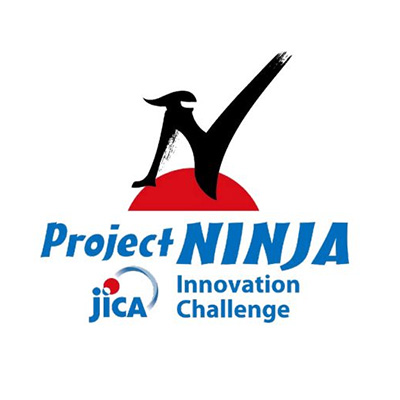How to Say "No" Nicely: A Guide to Setting Boundaries with Grace
![Online Violence Against[..]-Image](https://achianila.com/storage/uploads/blogs/JYlsiC5SWylHiVr6kjJFdv4DuV0tcsEwQR2O3Hme.jpg)
Overivew
Saying "no" can feel uncomfortable, especially when you don’t want to disappoint others. However, setting healthy boundaries is essential for personal well-being, productivity, and maintaining strong relationships. Research suggests that people who struggle to say "no" often experience higher stress levels and burnout (American Psychological Association, 2021).
The key to saying "no" nicely is to be firm yet respectful, ensuring your response is both kind and clear.
Why Saying "No" is Important
Why Saying "No" is Important
Many people struggle with saying "no" due to fear of conflict, guilt, or the desire to please others. However, studies show that overcommitting can lead to burnout, reduced efficiency, and increased emotional exhaustion (Maslach & Leiter, 2016). For example, imagine agreeing to take on an extra project at work while already juggling multiple deadlines. The added stress could lead to mistakes, missed deadlines, and even resentment. Learning to decline requests politely helps you:
✅ Protect your time and energy
✅ Stay focused on your priorities
✅ Maintain healthy relationships
✅ Reduce stress and overwhelm
Ways to Say "No" Nicely
1. Be Direct but Polite
A simple and clear "no" is often the best approach. There’s no need to over-explain or make excuses.
💬 Example:
🔹 “I appreciate the offer, but I have to decline.”
🔹 “Thank you for thinking of me, but I won’t be able to take this on.”
2. Express Gratitude
Acknowledging the request before declining makes your response more considerate.
💬 Example:
🔹 “I’m honored you thought of me, but I can’t commit right now.”
🔹 “This sounds like an amazing opportunity, but I have to pass.”
3. Offer an Alternative (If Possible)
If you truly want to help but can’t commit fully, suggest another solution.
💬 Example:
🔹 “I can’t take this on, but maybe [Name] would be interested.”
🔹 “I don’t have time this week, but I’d love to help next month.”
4. Use the "Sandwich" Method
This method softens a "no" by surrounding it with positivity.
💬 Example:
🔹 “That sounds like a great idea! Unfortunately, I’m fully booked, but I appreciate the offer.”
5. Blame It on Your Schedule
If you feel uncomfortable saying "no" directly, let your workload take the blame.
💬 Example:
🔹 “I’d love to help, but I have too many commitments right now.”
🔹 “I have to focus on my current priorities, so I can’t take this on.”
6. Set Clear Boundaries
When people push back, reinforce your decision confidently.
💬 Example:
🔹 “I wish I could, but my schedule won’t allow it. I need to stick to my commitments.”
🔹 “I can’t take this on, and I need to be firm about my boundaries.”
Scientific Backing for Saying "No"
📌 The Power of Prioritization: A study by Baumeister et al. (2018) highlights that people who set clear boundaries and prioritize their commitments are more productive and experience greater job satisfaction.
📌 Avoiding Decision Fatigue: According to psychologist Roy F. Baumeister, repeatedly saying "yes" to too many requests can lead to mental exhaustion, making it harder to make effective decisions (Baumeister et al., 2007).
📌 Burnout Prevention: The World Health Organization (2019) recognizes burnout as a serious occupational phenomenon. Learning to say "no" is a key strategy in preventing it.
Final Thoughts
Saying "no" doesn’t make you selfish; it makes you intentional with your time and energy. The more you practice, the easier it becomes. By being honest, respectful, and considerate, you can maintain strong relationships while protecting your well-being.
So next time you need to say "no," do it with confidence and kindness! 😊
References:
- American Psychological Association. (2021). Stress and Overcommitment: Understanding the Risks of Saying Yes Too Often.
- Maslach, C., & Leiter, M. P. (2016). Burnout and Work Engagement: The Road to Well-being.
- Baumeister, R. F., Bratslavsky, E., Muraven, M., & Tice, D. M. (2007). Ego depletion: Is the active self a limited resource? Journal of Personality and Social Psychology, 74(5), 1252-1265.
- World Health Organization. (2019). Burnout an "Occupational Phenomenon": International Classification of Diseases.
Popular Blogs
-

Reimagining Trust in the Digital Age: A Conversation on Blockchain, Inclusion, and the Road Ahead
-

As we navigate the future, ensuring AI safety matters more than ever
-

International Mother Language Day: Celebrating Linguistic Diversity and Cultural Heritage
-

How to Say "No" Nicely: A Guide to Setting Boundaries with Grace
-

Password 101: Everything You Need to Know About Strong Passwords
-

How to Start Your First Line of Code: A Beginner’s Guide
-

No, I Didn’t Do Any Magic to Develop an All-Female Software Team
-

Women entrepreneurship development in Bangladesh
-

Online Violence Against Women In Bangladesh And Initiatives
-

Gender Lens Investment















